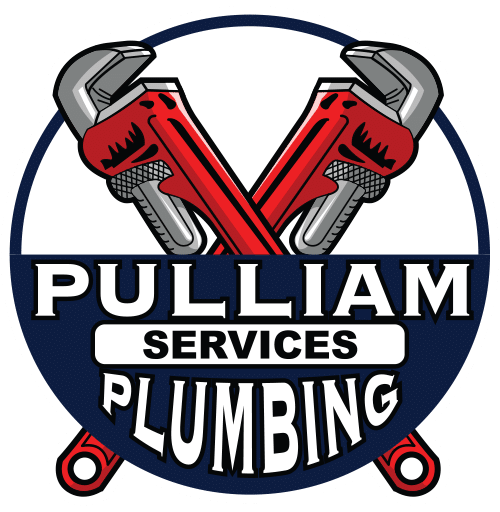Water is a vital part of our daily lives, but in many areas, the water that flows from our taps is hard. This means it contains high levels of minerals like calcium and magnesium, which can cause a myriad of problems in our homes. We, at our company, understand the challenges that come with hard water in Boerne and Fair Oaks, Texas, which is why we specialize in providing top-quality water softeners to our clients.
Hard water can damage appliances, leave unsightly mineral deposits on dishes and surfaces, and even affect your skin and hair health. Installing a water softener in your home can mitigate these issues by removing the minerals that cause hardness. But how do water softeners work? Essentially, they use a process called ion exchange, which swaps the hardness ions in the water with sodium or potassium ions, making the water “softer.”
Knowing the benefits that a water softener can provide is critical for any homeowner looking to maintain an efficient and healthy home environment. From protecting your appliances and saving on maintenance costs to improving your quality of life, a water softener is an investment that pays off in multiple ways.
Throughout this article, we’ll guide you through everything you need to know about water softeners—from how they work and the reasons your home should have one to choosing the right type and maintaining it for optimal performance.
Understanding Water Softeners and How They Work
Water softeners are crucial for preventing the accumulation of minerals in your home’s plumbing system. The process they use is straightforward, yet highly effective. They function by exchanging the minerals like calcium and magnesium, which are primarily responsible for water hardness, with sodium or potassium ions. This exchange happens in a unit called the ion exchange tank, which is the heart of any water softener system.
The mechanics begin when hard water enters the ion exchange tank. As it flows through the resin beads coated with sodium or potassium, the calcium and magnesium ions swap places with the sodium or potassium ions. The result? The water that exits the tank is “softened,” considerably reducing the risk of mineral buildup in your home’s pipes, which can lead to inefficiencies and potential damage in your plumbing and appliances. This simple yet effective process is why many homeowners find installing a water softener an essential step in home maintenance.
Top 5 Reasons Why Your Home Needs a Water Softener
Having a water softener installed in your home offers numerous advantages. Here are the top five reasons why it might be a necessity rather than a luxury:
1. Extended Appliance Life: Hard water can significantly shorten the lifespan of your appliances. By using a water softener, you protect these investments, ensuring appliances like your water heater, dishwasher, and washing machine function efficiently for much longer.
2. Fewer Plumbing Repairs: Soft water is easier on your home’s plumbing. Hard water causes scale buildup inside pipes, which can lead to blockages and expensive plumbing repairs. With a water softener, you greatly reduce the likelihood of these issues.
3. Cleaner and Shinier Utensils, Glassware, and Mirrors: Water softeners remove the minerals that cause water spots. So, you’ll notice that your dishes, glassware, and even your bathroom mirrors stay shinier and cleaner with fewer water spots.
4. Smoother Skin and Cleaner Hair: Hard water can dry out your skin and leave your hair feeling sticky from soap residue. Soft water helps soap rinse out more thoroughly, leaving your skin and hair clean and soft.
5. Reduced Soap and Detergent Use: With hard water, soaps and detergents do not lather as well, which means you end up using more to achieve the desired cleaning effect. Soft water increases the efficiency of these cleaning agents, allowing you to use less and save money.
By understanding these benefits and how water softeners function, homeowners can make informed decisions about managing water quality in their homes. Managing hard water is not only about improving convenience but also about extending the longevity and functionality of your home environment.
Comparing Types of Water Softeners: Which Is Best for Your Home?
When considering a water softener for your home, understanding the different types available is crucial for making the right choice. Each type of water softener has unique features and is better suited for specific water conditions and household sizes.
The most commonly used type is the ion exchange softener, which we have previously described. This type is excellent for homes with high levels of hardness and performs consistently well. Another popular option is the salt-free softener, which uses a potassium-chloride salt substitute rather than sodium. This type is ideal for those who are concerned about salt intake from softened water and is environmentally friendly. Lastly, magnetic water softeners, which use magnetic fields to alter the characteristics of water minerals, prevent them from being deposited as scale. These are easy to install and maintain, making them suitable for minor scale problems.
Choosing the right type depends on your household’s water usage, the hardness of your water, and health and environmental considerations. Each system has its pros and cons, so we recommend consulting with a professional to assess your specific needs and ensure optimal performance and efficiency.
Maintenance Tips for Your Water Softener to Ensure Peak Performance
Maintaining your water softener is key to ensuring it operates efficiently and lasts as long as possible. Regular maintenance not only extends the life of the unit but also keeps it working at peak performance, safeguarding your home’s plumbing system and appliances from hard water damage.
First, check the salt levels in the brine tank at least once a month. Keeping the tank three-quarters full ensures adequate salt for the regeneration process. Use the right type of salt recommended by the manufacturer, as using the wrong kind can cause the unit to malfunction. Secondly, the resin beads, crucial for the ion exchange process, occasionally need cleaning, especially in areas with high iron content in the water. Use an iron-out product annually to clean the resin bed, or more frequently if you notice a decrease in water softness.
Lastly, schedule a professional inspection of your water softener system at least once a year. We can check for any potential issues such as salt bridges, resin bead deterioration, or mechanical failures. Regular professional checkups help catch issues early, keeping the system running smoothly and efficiently.
Final Thoughts
Installing and maintaining a water softener in your home can significantly impact the longevity and efficiency of your household plumbing and appliances. From selecting the right type of softener to understanding its maintenance needs, taking proactive steps ensures that you maximize the benefits of your investment.
At Pulliam Plumbing, we are committed to helping you maintain a comfortable and efficient home environment. Our team of expert plumbers in Boerne, TX, is ready to assist with any plumbing needs from installation to maintenance and repairs. To learn more about our services or to schedule a consultation for water softener installation, don’t hesitate to contact us today.




